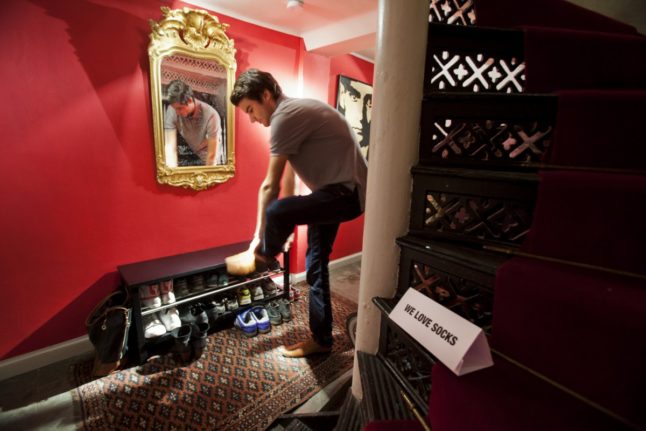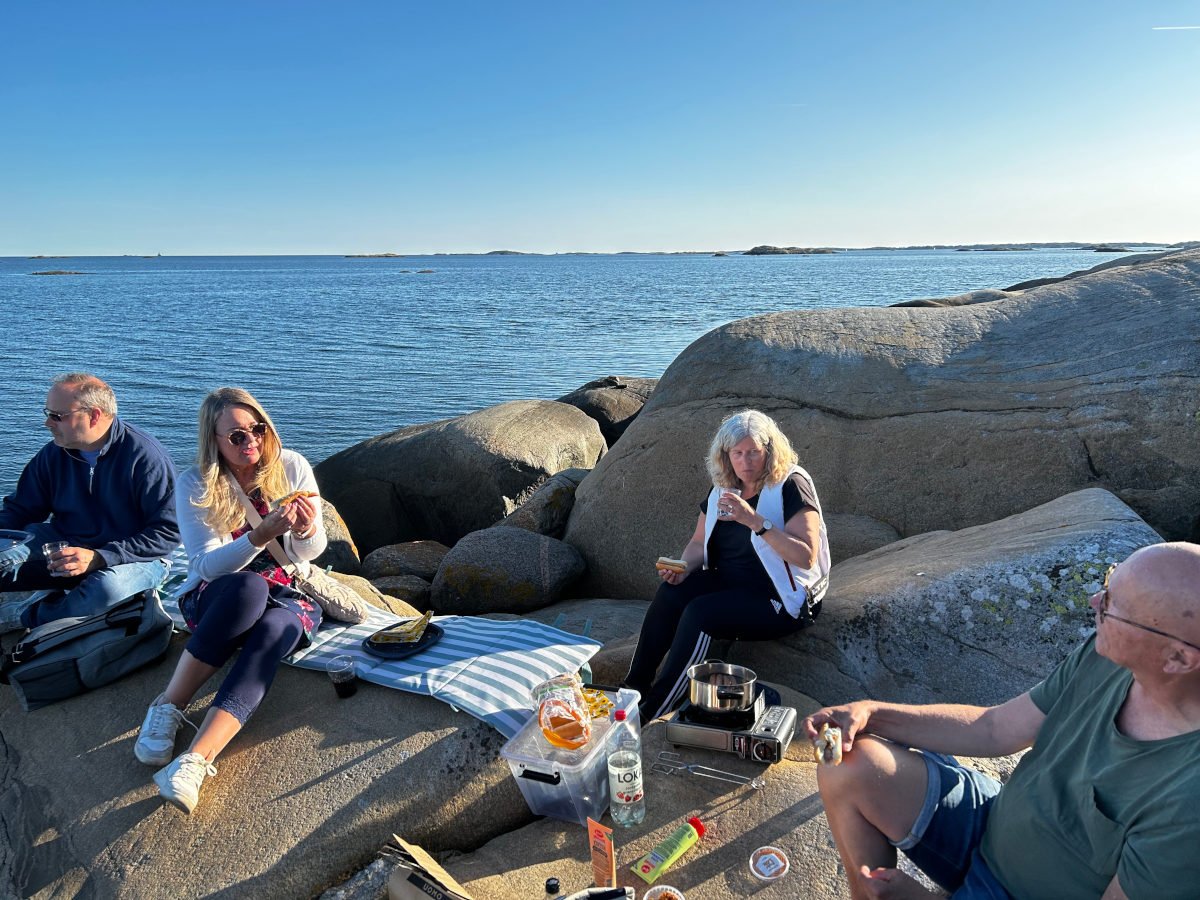1. Arrive on time
Being punctual is a must. If the invite says the party starts at 7pm, turn up at 7pm, when you may even find a crowd on the doorstep. There is no such thing as being fashionably late in Sweden.
2. Hug your host
Whether you’re dropping in on a new neighbour or bracing yourself for cocktails with your boss, prepare to be greeted with a hug on your arrival. You won’t get away with an air kiss or a high five no matter how hard you try.
3. Take your shoes off
Swedes don’t wear shoes indoors. So after that hug and while you’re busy waving at the other guests, you also need to negotiate taking off your shoes.
Avoid sock-based humiliation by checking for holes before you set off from home. If you’re short and usually wear heels, prepare to be towered over by tall Swedes for the evening.
4. Shake hands with or hug everyone else
Once you’ve peeled off your shoes and layers, you can join the party. If you know people already, you should head over and give them a hug (even if you’ve only met them once before).
Then, you’re expected to introduce yourself to everyone else in the room with a handshake. Got drunk at the last party you went to? Cue an awkward half-hug-half-handshake with that guy you don’t remember talking to a month ago.
5. Bring your own booze
Time for a drink to help you through all this confusing Swedish etiquette? Don’t help yourself to whatever is open in the kitchen.
Swedes bring their own alcohol to parties, often keeping it in a neat plastic bag throughout the night. Off licences close at 3pm on a Saturday in Sweden and there is nowhere else to buy booze after this time (unless you go to a bar) so it is no wonder that people are protective of their bubbles.
6. But don’t turn down a shot
If some generous fellow has brought along some snaps, you’ll be frowned upon for not joining in.
Beware that spirit consumption in Sweden often leads to a lot of singing. You’ll be fluent in Swedish in no time after joining in with the drinking songs.
7. Prepare for bedroom-based dancing
Once you’re full of beers, you may well be in the mood for a boogie.
Sweden’s big cities have a higher proportion of studio apartments than most major urban centres in Europe, so if your host is single or you’re partying with a couple in their twenties or thirties then there is a strong chance you’ll find yourself making shapes next to someone’s bed or underwear drawer (more on this later).
8. Don’t touch the last snacks
Feeling peckish after all that dancing and drinking? Whatever you do, don’t polish off the last of the snacks in the kitchen.
Swedes are polite and that final piece of ostbågar or dillchips you’ve spotted is likely to linger in the bowl for hours. Nobody wants to be seen to be greedy in Sweden. Do you?
9. Leave drugs at home
Drugs are a taboo in Sweden, so no matter how wild a snaps-fuelled party has become, you’re likely to lose friends quickly among most crowds if you suggest adding any illegal substances into the mix.
10. Wear your best underwear
Swedes have a reputation for being more sexually liberated than people from other countries and one night stands are less of a taboo here than in many places. Yes of course not all Swedish people fit this stereotype. But then again, you might just get lucky…





 Please whitelist us to continue reading.
Please whitelist us to continue reading.
Member comments